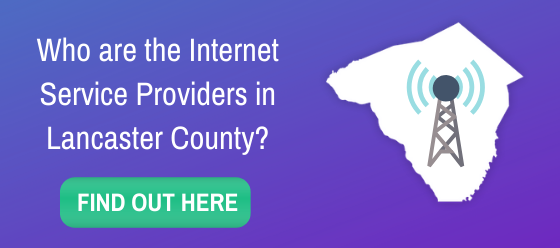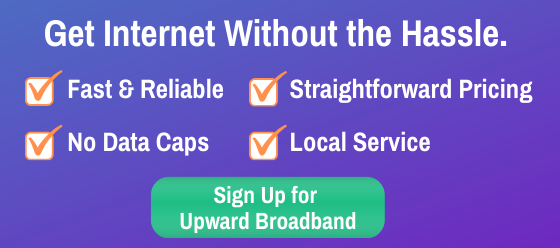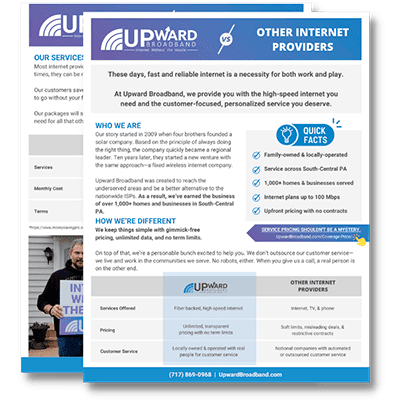Internet service providers are notorious for having unsatisfied customers. Whether it’s poor customer service or frustrating pricing, many people wish they could make the switch to another provider. Whether that’s the boat you’re in, or if you’re looking to sign up for internet for the first time, there are a few factors to consider when choosing an internet service provider.
From understanding what options are available in your area to evaluating the packages and the companies, we’ll give you the tips you need to know to sign up with the right internet service provider for you.
What Internet Options Are Available in Your Area?
The first step in choosing an internet service is finding out what the options are in your area. There are a few different methods of connecting your home or business to the internet. Cable, fiber optics, satellite, DSL, and fixed wireless internet are all common types, but they won’t all be available to everyone.
While cable and fiber internet providers offer fast speeds and reliability, they are often not available in less populated areas. While DSL and satellite internet are available in most places, they do not offer the same high-speed connection as cable and fiber. Fixed wireless brings a high-speed internet option to many areas where cable and fiber are not available. To learn about fixed wireless internet and how it works, check out our blog.
There are websites and resources you can use to determine which services are available to your home or business and which companies deliver them.
What Internet Package Works for You?
Once you’ve narrowed down which type of internet your home or business has access to, it’s time to pick a plan. You’ll want to consider things like what speed you’ll need, how much the service will cost, and what caps, if any, are placed on your access.
1. What Speed Do You Need?
Selecting the proper internet speed is an important decision when choosing an internet service provider. If you choose a speed that’s too slow, you’ll waste time. If you choose a speed that’s too fast, you’ll waste money.
When it comes to speed, your options may be limited based on your location. Not all providers offer all packages in all locations. If you’re in an area that cable and fiber doesn’t service, you may not have access to high-speed internet, unless there is fixed wireless internet in your area.
When you’re choosing a speed, take into account how many people will be using the internet at one time and what kind of activities they’ll be using the internet for.
Streaming videos and downloading large files will take a lot more bandwidth than just browsing the web or answering emails.
2. Introductory Deals and Installation Costs
It’s important to know that the monthly cost you see advertised in big print may not be what you actually pay in the long run.
Many companies sweeten the pot with great rates on introductory deals only for them to shoot up a few months into the contract. Some companies also charge a fee for breaking the contract early, meaning you might be stuck paying high rates down the line if you don’t read the fine print in the beginning.
In addition to the monthly price, you’ll also likely have to pay a setup or installation fee. This will vary depending on the type of service you select. Because satellite internet requires expensive equipment and the professional installation of that equipment, it’s often on the pricier side, where cable and DSL are often less expensive.
Fixed wireless set up fees vary from company to company, but Upward Broadband has a one-time activation fee between $149 to $99, which includes all equipment and installation.
3. Bundling

Another common practice for many providers is to bundle internet with other services like television or phone. If you are sure to use all the services in the bundle, then these options can be great for you. However, many Americans are “cutting the cord” on cable TV and transitioning to video streaming services, and even more homes are relying on cell phones over landlines.
It would make sense that eliminating these unused services would cut costs, but because of service bundling, the money you save by forgoing them is so small it’s hardly worth it.
If you are looking to reduce your expenses and stop paying for services you don’t use, look for a provider that has a simple pricing structure free of bundles.
This will vary from company to company, but fixed wireless internet providers typically offer straightforward and unbundled pricing.
4. Data Caps
When considering your package, be sure to look out for any data caps the provider may have. Not all providers make it clear that they put data caps on their customers, let alone clearly specify what they are and how much going over will cost.
Depending on how you use the internet, these may not be an issue for you. However, the time we spend online is increasing, and additional charges on your bill is never a pleasant surprise.
How to Choose the Best Internet Service Provider
Now that you know what you are looking for in an internet service, it’s time to find the best company to give you that service. Opting for local companies and taking the time to shop around are your best bets for finding the company that’s right for you.
1. Shop Around
When it comes down to it, one of the best things you can do is gather as much information as you can and compare your options. It takes time and it isn’t always fun, but it can make a big difference in getting the best internet service.
Be sure to ask then about data caps, additional costs, installation fees, and how the monthly pricing will look over time. These are important factors that aren’t always easy to find but can make a big difference.
2. Check Into Their Customer Service & Go Local
Online reviews are extremely helpful for picking a restaurant or choosing a contractor. However, reviews for internet service providers are notoriously poor. It can be hard to really get the feel for what it’s like to work with an internet service provider by just going off their online reviews. You’ll be hard-pressed to find providers with positive reviews. However, checking out their website and getting the feel of the values and mission of the company will likely give you valuable insight into how they do business.
Another helpful tip is to stick with a local provider if possible. Many of the large internet providers service people across dozens of states from a far-away headquarters. While they may have a team of regional support specialists, it could be days before they’re able to get out to help you. However, if you can find a local company, you’ll likely get better service.
A smaller provider that’s in your city will not only have technicians in the area able to quickly serve you, but your business will mean more to them.






